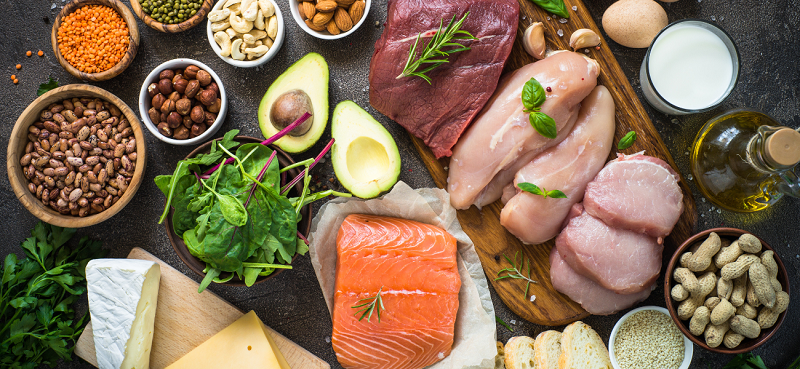As we age, our bodies undergo a variety of changes that can affect our health and well-being. One of the most important factors in healthy aging is maintaining adequate protein intake. Protein is an essential nutrient that plays a vital role in the body, supporting everything from muscle mass and bone health to immune function and wound healing. In this article, we’ll explore the importance of protein for healthy aging and provide tips for getting enough protein in your diet.
Table of Contents
Protein and Aging
As we age, our bodies become less efficient at processing protein. This means that we may need to consume more protein to maintain the same level of muscle mass and strength. Additionally, many seniors and elderly individuals have decreased appetites and may not be getting enough protein from their diets alone. The protein needs of seniors vary depending on their activity level, body weight, and overall health, but in general, they should aim to consume between 1.2-1.5 grams of protein per kilogram of body weight per day.
Benefits of Protein for Aging
Protein has the following benefits for aging:
1. Maintaining muscle mass and strength
Protein, you might already know, is essential for building and maintaining muscle mass and strength. This is especially important for seniors, as loss of muscle mass can lead to decreased mobility, falls, and other health problems.
2. Supporting bone health
Protein is also important for maintaining bone health. Studies have shown that increased protein intake can improve bone mineral density and reduce the risk of fractures in older adults.
3. Improving immune function
Protein is necessary for building and maintaining a healthy immune system. As we age, our immune function can decline, making us more susceptible to infections and other health problems. Adequate protein intake can help support immune function and reduce the risk of illness.
4. Promoting wound healing
Protein is essential for wound healing, as it helps to repair damaged tissue and promote the growth of new cells. This is particularly important for seniors, who may have slower healing times than younger individuals.
5. Enhancing cognitive function
Protein is also important for brain health and cognitive function. Studies have shown that increased protein intake can improve memory, attention, and other cognitive functions in older adults.
Sources of Protein
There are many different sources of protein, including animal-based sources like meat, poultry, and dairy products, and plant-based sources like legumes, nuts, and seeds. It’s important to choose protein sources that are nutrient-dense and low in saturated fat. For seniors who have difficulty chewing or swallowing, protein supplements may also be a good option.
Challenges of Protein Intake for Aging Individuals
Several challenges can make it difficult for seniors to consume enough protein, including difficulty digesting and absorbing protein, dental problems that affect protein intake, limited appetite, reduced taste sensation, and economic and social factors that can affect access to protein-rich foods.
Conclusion
Protein is an essential nutrient for healthy aging, supporting everything from muscle mass and bone health to immune function and cognitive function. If you’re a senior or elderly individual, it’s important to make sure you’re getting enough protein in your diet. Choose nutrient-dense protein sources and consider protein supplements if needed. To learn more about protein and healthy aging, visit https://www.happyway.com.au/ to learn more about our range of high-quality protein supplements and other health products.

